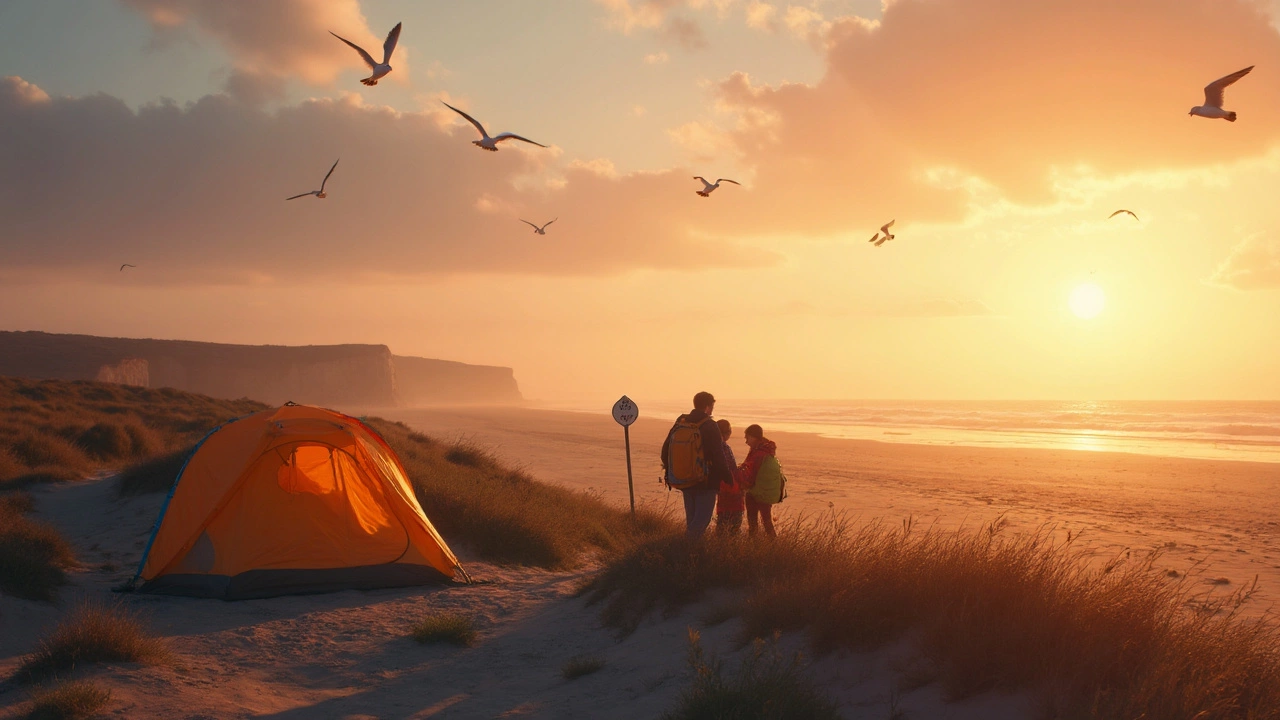Beach Rules: What You Need to Know Before Setting Up Camp
If you love the sound of waves and the feel of sand under your boots, you’ll probably think about spending a night on the beach. It sounds perfect, but the UK has strict rules that can turn a dream night into a pricey fine. This guide breaks down the key rules, shows you where you can stay legally, and offers alternatives that let you enjoy the coast without worry.
What the Law Says About Beach Camping
Most English and Welsh beaches are covered by local by‑laws that forbid camping, sleeping or leaving equipment overnight. The law is clear: you can’t set up a tent, park a motorhome or leave a caravan on a public beach unless you have explicit permission. In Scotland, the situation is a bit different – the Scottish Outdoor Access Code allows responsible wild camping on most land, but you still need to respect any local signage and avoid protected areas.
Fines vary by council, but they can be as high as £150 for a first offence. If you ignore the signs, you risk getting asked to leave, receiving a ticket, or even having your gear confiscated. The rule of thumb is simple: if there’s a sign that says “No Camping”, assume it applies.
Smart Ways to Enjoy the Beach Without Breaking Rules
Don’t let the rules ruin your beach day. Here are some legal alternatives that still give you that overnight beach vibe:
- Designated Campsites: Look for nearby coastal caravan parks or campsites. They often have direct beach access and all the amenities you need.
- Day‑Use Camping: Some councils allow you to set up a low‑key day‑use tent for a few hours, as long as you pack out everything and leave before sunset.
- Private Land: If you can get permission from a landowner, you can camp on private dunes or beaches. Always get written consent.
- ‘Tidy Camping’: Take a portable shelter that’s easy to remove, keep your footprint tiny, and be ready to leave if a ranger shows up.
When you do camp legally, follow these simple habits: set up away from dunes, keep noise low, and never leave rubbish behind. A small fire pit is often prohibited, so use a portable stove instead.
Another tip is to check local council websites before you travel. Many councils publish up‑to‑date maps showing where camping is allowed and where it isn’t. A quick search can save you from an unwanted surprise.
If you’re set on a beach experience, consider a ‘glamping’ pod or a beach‑side cabin. These options give you the sound of surf, a roof over your head, and no legal hassle.
Finally, respect the environment. Coastal areas are fragile, and litter or trampling can cause erosion. Stick to marked paths, use biodegradable soap, and always take your waste home.
By knowing the rules and planning ahead, you can enjoy a night by the sea without worrying about fines or evictions. The UK coastline is full of beautiful spots – just make sure you’re on the right side of the law when you set up camp.
Why You Shouldn't Take Seashells from the Beach: Ecology, Laws, and Better Alternatives
Thinking of pocketing shells? Here’s why that hurts coasts, what the law says in 2025, and easy ways to enjoy beaches without taking a thing.
Can You Pitch a Tent on a Beach? Facts, Rules, and Real Tips
Not every beach is open for pitching a tent, and the rules can surprise you. This article breaks down where you can camp on the beach, what laws and hidden hazards to watch for, and why some spots are worth the fuss. You'll find practical advice on spotting the perfect site, dodging common mistakes, and making your beach camp safe and fun. It also covers less obvious details that matter, like local wildlife and unexpected weather twists.
Does Edisto Beach Allow Tents on the Beach? Rules and Insider Tips
Thinking of bringing a tent to Edisto Beach? This article unpacks the current tent rules, explains why these policies are in place, and shares what you can (and can’t) bring to the sand. You’ll also get handy tips for staying cool, shielding yourself from the sun, and making the most of your beach day. Whether you want family shade or a full camp setup, you’ll know exactly what’s allowed when you hit Edisto.


